Should you spend money on cosmestics containing collagen?
A few years ago, very few people knew what collagen was. Then the wave of new trends and styles, especially under the exaggerated advertising, made people too familiar with collagen. From foods, drinks containing collagen, collagen supplements and more “heavy” injections of collagen … People think that when collagen is deficient due to age, the best way is to “mobilize” collagen from outside. From high-end to affordable, you can easily find collagen in cosmetics in any market segment.
In fact, collagen acts as a glue that connects cells under the skin, giving the skin a smooth and firm appearance. However, from the age of 20 onwards, our skin begins to limit the production of collagen, causing sagging skin and signs of aging. Therefore, many cosmetic companies have launched products containing collagen with promises to help “rejuvenate” the skin.
However, Dr. Hayley Goldbach, a resident physician at UCLA’s dermatology department (Los Angeles) confirmed: “The collagen molecules are too large for the skin, even when they are broken down into hydrolyzed collagen, there is not much evidence of their effects. They will make your skin look healthier because of their simple moisturizing ability.”
In addition, there is no significant study showing that using collagen in cosmetics stimulates the natural collagen production of the body, or has the ability to make the skin more elastic in the area where cosmetics are applied. For topical products, even if they meet quality standards, they can still cause skin allergies. Especially, if you apply collagen incorrectly, not suitable for your body type, or use poor quality products, you may have complications such as skin infection or allergic dermatitis. Don’t waste money on Collagen products

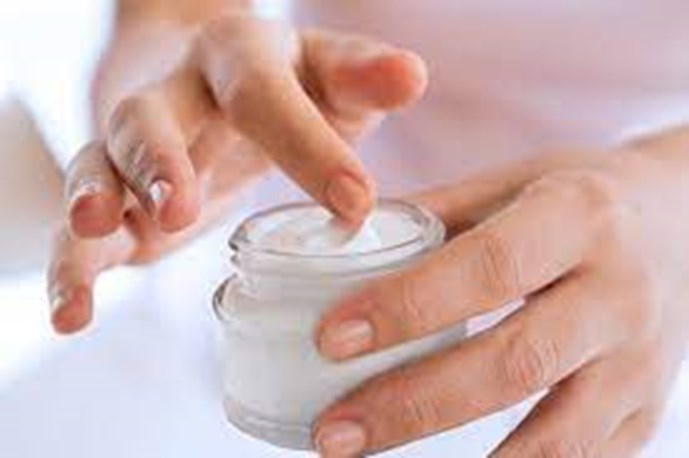
Do not waste money on Collagen products
Besides, some studies suggest that you should be careful with the origin of collagen in cosmetics. Currently, the main source of collagen in cosmetics comes from animal sources (pig skin, beef tendon), seafood (fish scales and skin), or plant sources (synthesized by bacteria in the laboratory). For collagen from animal sources, there is a risk of transmitting diseases from farm animals from farms that do not meet sanitary standards. Collagen from fish is said to cause irritation to people who are allergic to seafood.
Instead of products containing collagen, dermatologists advise women to diligently use sunscreen every day and build a healthy lifestyle to help protect the skin optimally. In addition, Dr. Hayley Goldbach also advises you to use topical products containing retinol or skin care products containing vitamin C, antioxidants or hyaluronic acid also have the effect of nourishing the skin and limiting signs of aging.
3 cosmetic choices to rejuvenate your skin that you can replace with collagen cosmetics are:
Cosmetics containing peptides: Basically, collagen is a type of protein. Protein, when “torn” into small pieces, becomes short amino acid chains (amino acids are the smallest unit of protein). The small size of peptides makes it easy to be absorbed by the skin. Therefore, the effect of cosmetics containing peptides is different from normal collagen in cosmetics.
Cosmetics containing vitamin C: A 2012 study showed that cosmetics containing the strongest type of vitamin C - L-Ascorbic Acid, at concentrations from 5 to 15%, have been proven to stimulate type I and III collagen production.
Cosmetics with Retinol/Vitamin A ingredients: Retinol is the best alternative solution. Retinol helps stimulate collagen production and helps regenerate youthful and firm skin. Among the retinol versions on the market, prescription types such as tretinoin or retin-A have the best effect when compared to over-the-counter versions.
< Source: Minh Nguyet_VnEconomy>
READ MORE
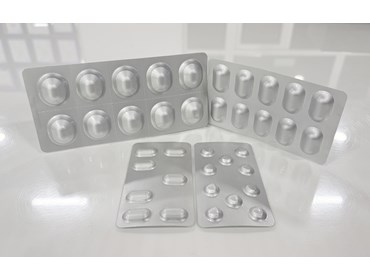
Blister packaging plays a vital role in shielding active ingredients from moisture, oxygen, and light, ensuring product stability throughout its shelf life.

In the pharmaceutical industry, equipment must not only be modern — it must be validated to ensure safety, consistency, and GMP compliance.

In the pharmaceutical industry, investing in machinery is not just about cost—it is also about quality, GMP compliance, and production optimization. That’s why DQ - Design Qualification is a mandatory step to ensure that equipment meets the right requirements from the beginning!

In the pharmaceutical industry, choosing machinery is not just about price or technology—it must also meet strict quality standards. This is where URS (User Requirement Specification) plays a crucial role!

Choosing the right pharmaceutical manufacturing equipment is one of the critical factors determining the success of an investment project. However, not everyone understands and implements it correctly. Below are some guidelines to help you select pharmaceutical manufacturing equipment properly.

Choosing an unreliable supplier for pharmaceutical machinery can expose your business to serious risks

Quality and Reliability of Equipment
Ensure that machinery meets international certifications like CE and Atex, complies with GMP standards, and operates stably and durably. Quality management should follow ISO 9001.
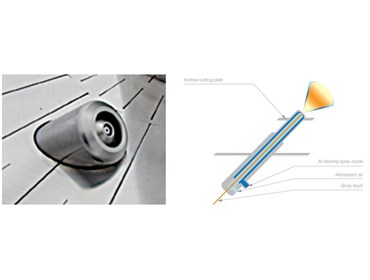
In modern pharmaceutical manufacturing, Tangential Spray technology in the Fluid Bed has brought a groundbreaking advancement. This advanced method involves spraying liquid materials (solutions or suspensions) at a tangential angle to the fluidized particles or pellets. The result? A swirling motion that ensures precise, uniform coating or granulation in a very short time.
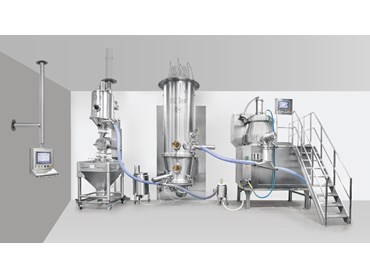
The wall from ceiling down to the floor level, making the line fully visible from the operator side with no air ducts on the front side.

Ensuring operational safety in the pharmaceutical industry is critical to maintain product quality, protect employees, protect environment and comply with regulatory standards. Here are some key requirements for ensuring process machine operational safety in the pharmaceutical industry:
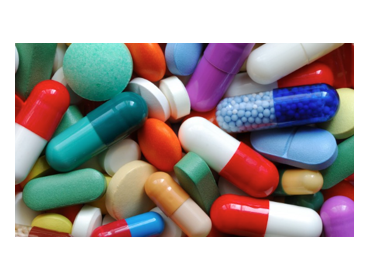
Selecting pharmaceutical machinery is a critical process that requires careful consideration to ensure compliance with regulatory requirements, product quality and operational efficiency.

In the ever-evolving landscape of pharmaceutical manufacturing, precision and efficiency take center stage. Our cutting-edge Auto Coating System revolutionizes the coating process, ensuring optimal product quality and streamlined operations. Let’s explore the key features that set our system apart:

Tien Tuan is thrilled to unveil our latest innovation in pharmaceutical containment technology – the Dispensing Isolator.

Some of challenges and typical benefits briefly of blister packing Anti-cancer tablet

Selecting pharmaceutical equipment is a critical process that requires careful consideration of various factors:
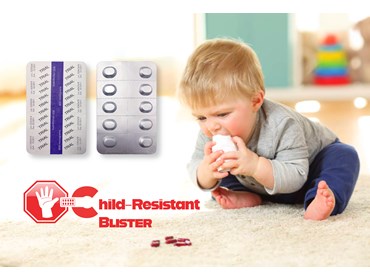
Child-resistant blister packaging is designed to prevent young children who may be curious and explore their environment from accessing and potentially ingesting harmful substances such as medications, yet remain relatively easy for adults to access.

FAT and GMP: IMPORTANT LINKS IN THE INVESTMENT PROJECT FOR PHARMACEUTICAL PLANT DEVELOPMENT

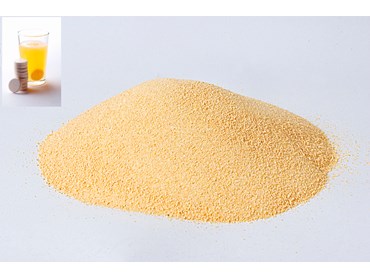
The wet granulation process in two separate steps is the most widely used technology and it is suitable for traditional drug mixing equipment such as Mixer & Granulator and Fluid-bed Dryer & Granulator.
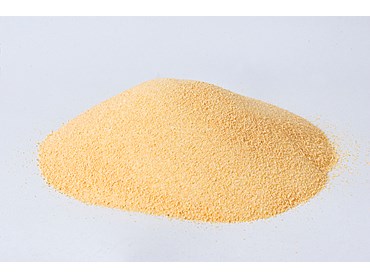
The one-step granulation process helps to create granules directly, by granulating acid and alkali granules together. Usually, water is used as a granulation solution, so the effervescent reaction must be controlled during the granulation process. Ethanol or propanol can also be used as a granulation solution, but then additional binders are needed to achieve the necessary cohesion. There are 2 types of equipment used to prepare effervescent tablets according to this technology
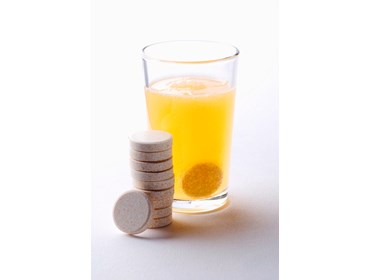
Effervescent tablets have the main advantage of being easy to use, especially effective for patients who are children. However, their production is more complicated than traditional tablets, especially the selection of technology and equipment.
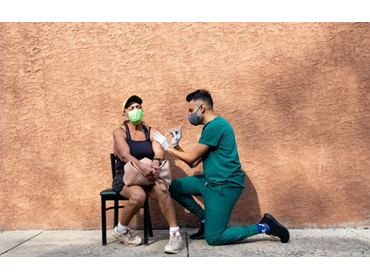
The effects of the new variant are difficult to announce accurately because unlike previous variants, Omicron mainly attacks young people who have better resistance.

Signing ceremony for cooperation in supplying fully automatic blistering cartoning line according to GMP-EU standard for US PHARMA

The Covid-19 pandemic has posed new challenges for pharmaceutical startups. What needs to be done to survive and develop, especially in this period. The StartUs Insight newspaper based on the analysis of “1745 famous pharmaceutical startups in 2020”, found the most outstanding startups. To turn challenges into opportunities, pharmaceutical companies have had “tips” for startups to survive the pandemic.

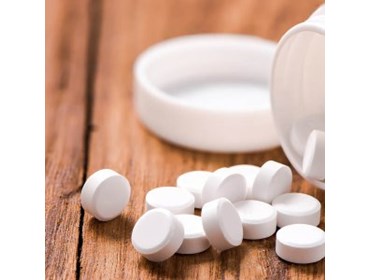
Checking the punches and dies and the components of the tablet press for wear or damage is one of the very important steps to improve the quality of the tablets. There are some points to check that we easily overlook but can cause significant quality problems for the tablets and reduce the life of the punches and dies. So take some time to check the following points to determine their wear or defects and quickly improve the quality of the tablets and reduce the cost of punches and dies

Ở một số nơi, khi số ca mắc #COVID-19 giảm xuống, một số biện pháp phòng chống dịch đang được gỡ bỏ...

Ngành công nghiệp dược phẩm tuân theo các yêu cầu khắt khe nhất đối với quá trình sản xuất và thiết bị được sử dụng phải tuân thủ thực hành sản xuất tốt (GMP). Khi xu hướng phát triển thuốc thay đổi, các quy trình sản xuất cũng phải thay đổi, phần lớn trong số đó hiện có thể được tự động hóa...

Cuộc khủng hoảng y tế COVID-19 mang lại những tác động và tiến bộ khoa học mạnh mẽ đồng thời cũng rút ra được những bài học kinh nghiệm quý báu cho các doanh nghiệp, tổ chức và các quốc gia trên thế giới:

Tại Trung tâm chống dộc Bệnh viện Bạch Mai đã tiếp nhận rất nhiều trường hợp bị ngộ độc do lạm dụng thuốc hạ sốt paracetamol để chữa COVID-19. Do đó, người dân nên cẩn trọng trước các bài thuốc lan truyền không rõ nguồn gốc trên mạng xã hội, trước khi sử dụng bất kỳ loại thuốc nào cần xin ý kiến bác sĩ, không được tự ý sử dụng.


Từ ngày 1/8/2021 doanh nghiệp có thể tra cứu trạng thái chứng nhận xuất xứ mẫu D trên internet. Đồng thời các doanh nghiệp nhập khẩu các lô hàng thuốc, nguyên liệu làm thuốc nhập khẩu luồng đỏ phải xuất trình bản gốc giấy uỷ quyền, giấy phép lưu hành và phiếu kiểm nghiệm sản phẩm

Hiệp định thương mại tự do Việt Nam - EU (EVFTA) có hiệu lực từ tháng 8/2020 mở ra nhiều cơ hội trong quan hệ đối tác toàn diện giữa hai bên. Tác động của EVFTA đến ngành dược phẩm đã có những kết quả dần rõ nét, đặc biệt là đối với các doanh nghiệp Châu Âu.

Việc duy trì sản xuất và giao hàng đúng hạn, giữ đúng cam kết với khách hàng là nỗ lực đáng ghi nhận, thể hiện uy tín, nội lực và sức cạnh tranh cao của Tiến Tuấn.

Theo Đại sứ quán Việt Nam tại Ấn Độ, đây là gợi ý được các ông lớn trong ngành dược phẩm Ấn Độ đưa ra trong buổi họp xúc tiến thương mại đầu tư do Đại sứ Việt Nam tại Ấn Độ - ông Phạm Sanh Châu chủ trì.



